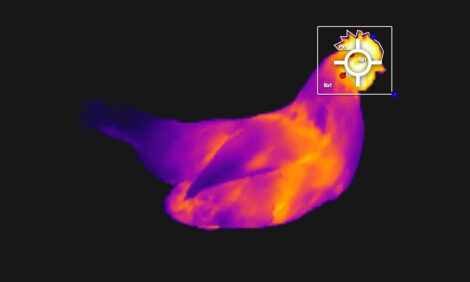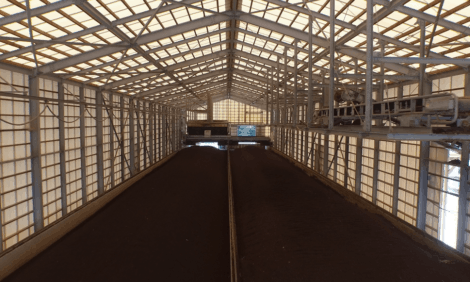



Effects of Feed-Borne Fusarium Mycotoxins on Hematology and Immunology of Turkeys
By S. R. Chowdhury, T. K. Smith, H. J. Boermans, and B. Woodward, University of Guelph and published by Poultry Science - Feeding grains naturally-contaminated with Fusarium mycotoxins has been shown to alter the metabolism and performance of turkeys.Abstract
The objectives of the current experiment were to examine the effects of feeding turkeys with grains naturally contaminated with Fusarium mycotoxins on their hematology and immunological indices (including functions), and the possible protective effect of feeding a polymeric glucomannan mycotoxin adsorbent (GMA).
Two hundred twenty-five 1-d-old male turkey poults were fed corn, wheat, and soybean meal-based starter (0 to 3 wk), grower (4 to 6 wk), developer (7 to 9 wk), and finisher (10 to 12 wk) diets formulated with uncontaminated grains, contaminated grains, or contaminated grains with 0.2% GMA. The chronic consumption of Fusarium mycotoxins caused minor and transient changes in hematocrit (0.33 L/L) and hemoglobin (106 g/L) concentrations as well as in blood basophil (0.13 × 109/L) and monocyte counts (3.42 × 109/L) compared with controls.
Supplementation of the contaminated diet with GMA prevented these effects on blood cell counts. Biliary IgA concentrations were significantly increased (4.45-fold) when birds were fed contaminated grains compared with controls, but serum IgA concentrations were not affected. Contact hypersensitivity to dinitrochlorobenzene, which is a CD8+ T-cell-mediated delayed-type hypersensitivity response, was decreased (48%) by feed-borne mycotoxins compared with the control.
By contrast, the primary and secondary antibody response to sheep red blood cells, a CD4+ T-cell-mediated response, was not affected. It was concluded that chronic consumption of grains naturally contaminated with Fusarium mycotoxins exerts only minor adverse effects on the hematology and some immunological indices of turkeys.
Consumption of grains naturally contaminated with Fusarium mycotoxins may, however, increase the susceptibility of turkeys to infectious agents against which CD8+ T cells play a major role in defense.
2005 Poultry Science 84:1698-1706
The study is published in Poultry Science - Volume 84, November 2005, Number 11
Source: Poultry Science - November 2005









